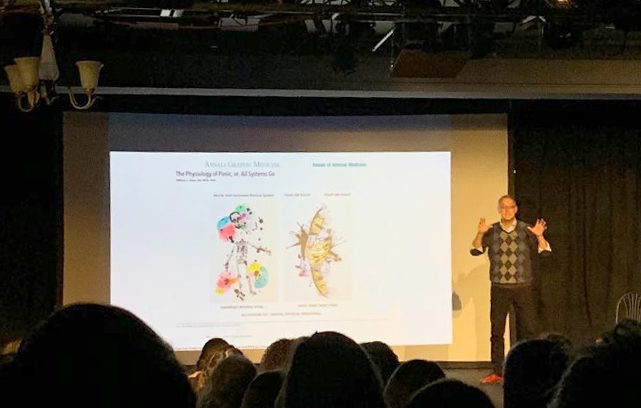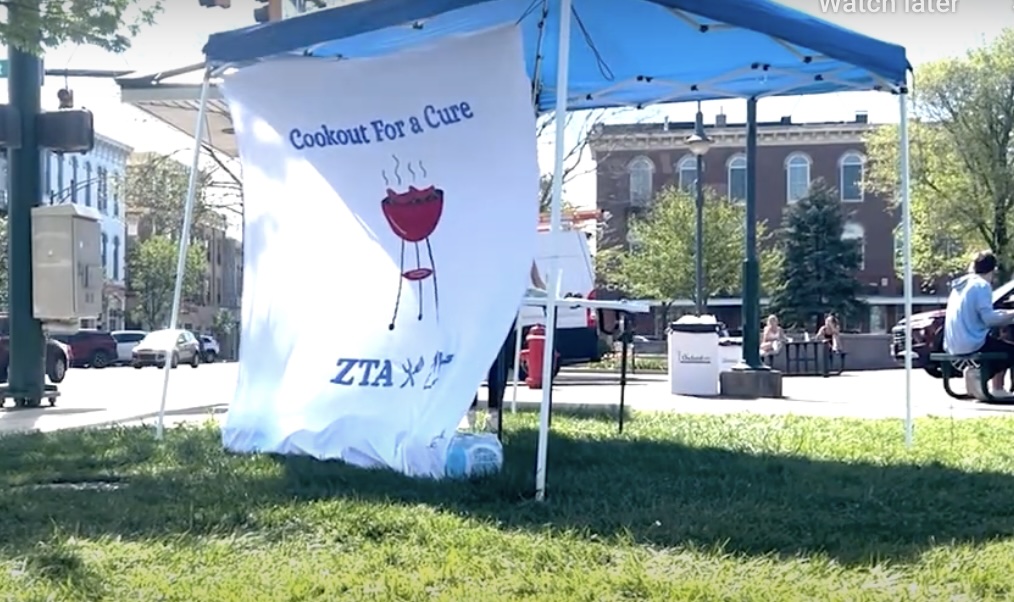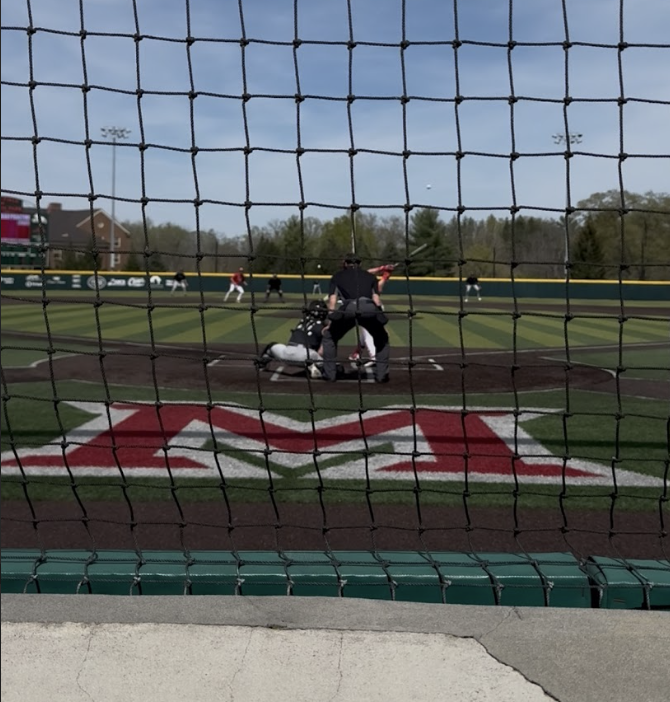William ‘Bill’ Doan’s “My Anxiety” series showcases more than 400 drawings and is committed to researching people living with anxiety and depression. Doan himself has struggled with anxiety and depression throughout his life, and was able to use art as an outlet for sharing his story with the world.
On Wednesday, Feb. 27 , a crowd of more than 100 people filled the auditorium in the Oxford Community Arts Center to look inside Doan’s mind. Each show uniquely starts with his “emotional support human” and assistant Tyler Sperrazza picking a random slide and he tells his story from there.
The 50-minute show included drawings with many vibrant colors and brief audiovisuals that all interacted with his story.
The title for this show, “Frozen in the Toilet Paper Aisle of Life,” comes from a real-life experience: he had a panic attack in Walmart just trying to buy toilet paper.
Throughout the show, he displayed some of his drawings which described how he was feeling when he couldn’t find the words for it. Many of the drawings were abstract and showed the strong emotions he was feeling throughout various points.

Doan’s show didn’t just focus on his own experience; he also took time to also explain to those who do not suffer as severely from anxiety or depression what it could feel like for the people who deal with these conditions on a daily basis.
He highlighted that there is still a lot to learn about these disorders, and he insisted that when diagnosing mental health disorders, we need to focus on people’s lives and individual experiences instead of checking off the boxes.
“My usual ways of managing anxiety and depression weren’t enough, and I needed another tool,” Doan said. He encourages anyone who deals with these issues to find the things that work for them and not fixate on the bad. “If you live with anxiety and depression, you’re desperate to know why, but remember an explanation is not a cure,” Doan said.
He used a great amount of humor in his show to try and lessen the heaviness that could come with this topic, and often interacted with the audience and his family.
“The diagnosis is not your destiny,” Doan said.














